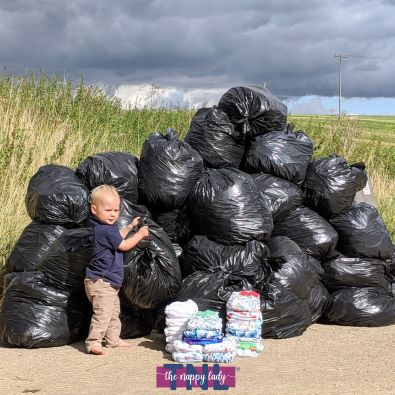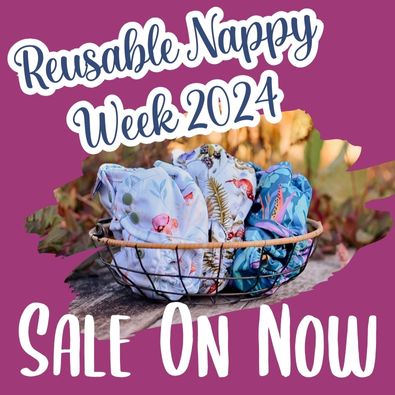Disadvantages of Disposable Nappies

https://www.sciencedirect.com/science/article/pii/S0165993621002314?fbclid=IwAR0RZsPvaNZACudbVslwURGi1z-kjGEkr5RmGjQD50pnEBXSiFm99wWeJ5wIf you’ve got this far into the website, you already know I’m not a big fan of disposable nappies. You might think the only disadvantage of disposables is the landfill issue, but there are other things to consider as well. The total environmental cost is so much more, once you factor in the 'hidden' impacts of the production line.
Many people are effectively swaddling their children in a chemical product, whilst at the same time trying to avoid chemicals elsewhere in their lives as much as possible. There are still many unknowns about the chemical impact, but you should be at least aware that there is one. The cost to parents is not only on the supermarket shelf, but also hidden into everyone’s council tax bills. (At least your non-nappying neighbours are sharing that burden, although that knowledge is unlikely to fill them with glee!)
There is a growing concern over the chemicals in disposable nappies and the dangers they potentially present to babies. I have no claim to being an expert in disposable nappies. A recent academic article covers more research into the risk and can be found here.
Just bear this thought in mind: disposable manufacturers are companies out to make a profit. Yes, they will create a product which increases the time your child stays in nappies and which has to be bought time and time again, because those are things which bring in recurring income for them. What they are not going to do is leave themselves open to litigation by not testing, to the best of their ability, the products they make.
For parents as consumers, that last comment should reassure you. Choosing to put your child in a disposable either full- or part-time is not a crime, and I would advise you to avoid dealing with people who try to make you feel guilty about this parenting decision. All I do is give you as balanced a source of information as I can - you know which nappies I think are best, but you must make your own decision!
I am indebted to The Sunday Times Magazine for pointing me to the full picture about the environmental issues, and to the relevant parliamentary select committee report. Anything which is conjecture or anecdotal is clearly stated as such.
I take the view that it's in the interests of disposables manufacturers to allow people to think the issues are 'simply' about plastic in landfill. They know that this is not actually going to change consumer choices in the vast majority of cases, however much people say they feel guilty about the landfill question. By concentrating on this aspect, issues such as the chemical implications of disposables are neatly brushed under the carpet - and these are the issues which directly affect our children, and so are the ones which are most likely to make us take action.
But while I feel strongly that people should use cloth nappies for their children because they prefer them, rather than because they feel guilty about the environmental impact of disposables, I must stress that there is much to feel guilty about. The environmental problems are not as big as you imagine - they are bigger. Switching to cloth nappies is not the only solution, but it is a start. Whether or not you choose reusable nappies, it is imperative that we all take on a little bit of environmental responsibility - if not for us, then for our children. Here are a few easy non-nappy steps we can take:
Stop buying so much!
How much of what you buy do you actually need or even really want? Encourage your children to think beyond 'I want' all the time. Avoid buying disposable items - by definition, you’re expected to throw them away and keep buying more. If you must buy things, buy recycled products. The whole thing is circular: you are not really recycling if you only send products for recycling, but never buy recycled products yourself. Avoid heavily packaged products.
Stop throwing away so much!
Composting is the unsung hero of waste management - if it biodegrades, compost it. If it isn’t broken, and you just don’t want it, give to someone who does. There are loads of charities and thrift shops or jumble sales who can make use of it.
Stop using plastic bags. All of my rubbish goes in degradable Tuffy bags - they break down to carbon dioxide and water, and you can buy them in the supermarket. Get durable bags for your shopping and reuse them. And stop the assistant from adding extra plastic to your shopping! Of what is left, recycle whatever you can.
Hassle people!
Keep on at the council to improve their kerbside recycling scheme and ask them what steps they are taking to reduce local waste. Contact manufacturers to complain about overpackaging or deliberate creation of disposable markets (who needed to use a disposable change mat five years ago, for instance?). Write to the local media about waste problems, especially if there is a particular local concern.
References:
